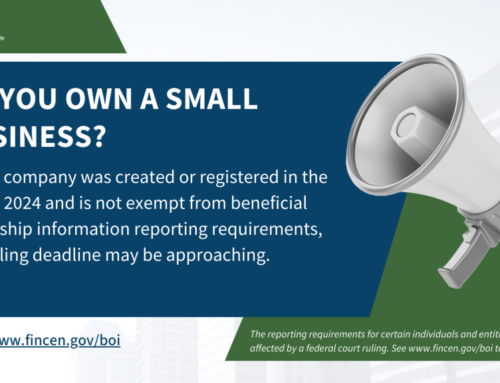5 Common Causes of Financial Loss for Small Businesses – In the challenging landscape of small business, even minor factors can have a significant impact on profits. Before you know it, your business may find itself struggling to survive. Generating a consistent profit is essential for the longevity of any small business, as it indicates financial stability. However, many new ventures encounter difficulties in maintaining a positive net profit, often due to subtle drains on their income that go unnoticed. These losses may start small but can accumulate over time, potentially jeopardizing the business’s sustainability. It is crucial to promptly identify the reasons behind your small business’s financial struggles. The sooner you pinpoint the sources of loss, 5 Common Causes of Financial Loss for Small Businesses – the quicker you can take corrective measures to mitigate or eliminate them.
Outlined below are five common causes that can lead to financial losses for small businesses. While some reasons may be obvious, others may require a closer examination to uncover. By investigating these causes, you can identify the areas in your business that require adjustment and implement the necessary changes.
Inadequate Accounting Practices
To have any chance of success, it is essential to have a clear understanding of your small business’s financial numbers. Without this knowledge, it becomes challenging to track the flow of money into and out of your business. Unorganized and inaccurate accounting practices have no place in running a business. Failing to promptly record transactions can lead to an inaccurate depiction of your available funds. For example, if you delay entering supply purchases into your accounting books, your records may erroneously indicate more money on hand than you actually possess. Consequently, you might overspend, resulting in negative cash flow for your small business.
Accurate and meticulous transaction recording is vital to prevent devastating errors caused by numerical mix-ups or misplaced entries. Regularly closing and reconciling your books, conducting internal audits, and enlisting the assistance of a professional accountant can help you avoid these pitfalls and maintain accurate business records.
Mixing Personal and Business Finances
It is strongly advised against using a single bank account for both personal and business banking purposes. Instead, it is crucial to open a separate business bank account. Even if you are a sole proprietor, having two distinct accounts is advisable. When personal and business funds are commingled in a single account, it becomes easy for the two to become intertwined, resulting in confusion about which funds belong to you personally and which belong to your business. This lack of separation can lead to financial losses.
Consider this scenario: you encounter a personal emergency that necessitates a significant sum of money. You withdraw funds from the shared bank account, inadvertently using more money than what belongs to you personally. As a consequence, your business suffers a loss because you failed to differentiate between personal and business finances.
Poor Product Pricing
Achieving the right balance in pricing your products is crucial. Setting prices too high may discourage potential customers from purchasing, perceiving your products as unaffordable, and seeking more affordable alternatives elsewhere. Conversely, if you set prices too low, you may attract more customers, but the profit margin may become so narrow that it compromises your ability to generate significant earnings. It is a delicate task to determine appropriate prices for your products, but not an impossible one. Conducting a thorough market analysis can provide valuable insights into your customer base and their preferences. Studying your competitors’ pricing strategies for similar products can also guide your pricing decisions. 5 Common Causes of Financial Loss for Small Businesses – Additionally, gathering input from customers and potential customers regarding their price expectations can further inform your pricing strategy.
Lack of Investment
At a certain point, a business’s growth may stagnate without further investment. Expanding operations, diversifying product offerings, and reaching new customers require financial resources. The path to greater profits often entails investing in your business. Failing to invest means missing out on your business’s true earning potential.
Multiple financing options are available for small businesses, such as personal investments, seeking assistance from friends and family, or obtaining a bank loan. However, it is crucial to allocate invested funds wisely, focusing on initiatives that promote business growth and avoid wasteful expenditure.
Inadequate Online Presence
In today’s digital era, the vast majority of people turn to the internet when searching for new businesses to engage with. Consequently, if your business lacks a strong online presence, you are missing out on a significant customer base. Establishing a website is essential for small businesses, even if you do not engage in online sales. A website serves as a valuable platform for potential customers to learn about your business, find contact information, or locate your physical store.
In addition to a website, it is crucial to maintain active social media accounts. Through regular updates, you can engage with customers, showcase your products, and announce special offers. Encouraging customers to leave reviews on your website, social media platforms, or review sites can enhance your company’s reputation and influence potential customers’ purchasing decisions. Moreover, claiming your business on platforms like Google allows you to manage and update your business details, ensuring your visibility in search results.
In conclusion, being aware of the common causes that lead to financial losses in small businesses is vital for their success. By addressing issues such as accounting practices, separating personal and business finances, pricing products appropriately, making strategic investments, and establishing a robust online presence, small business owners can enhance their profitability and ensure their long-term viability.







